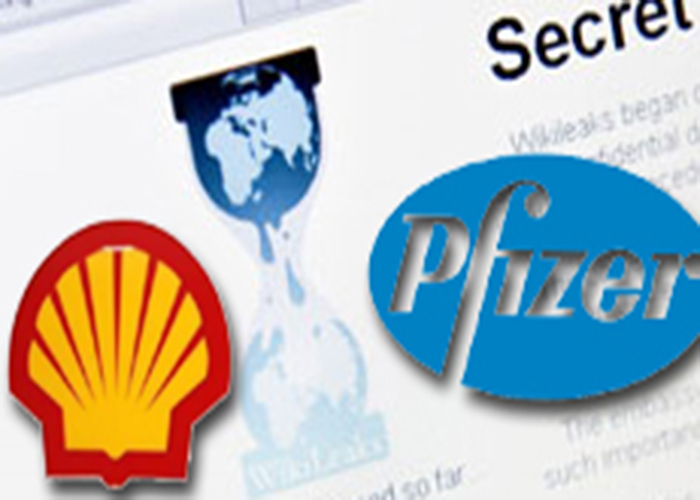Do you need to know this? I’m glad I do! I hope it goes some distance in preventing companies, like Pfizer, using my children as guinea pigs.
An excerpt from the link:
Pfizer was alleged to have administered an untested drug called Trovan Floxacin without authorization on almost 200 children infected with meningitis in the state.
Eleven of the children reportedly died, while the remaining 181 were said to have suffered from deafness, paralysis, brain damage and blindness.
Pfizer has termed the leaked allegations ‘preposterous’. However, it is another blow to the company’s already embattled reputation.
The every-person ‘whistle-blower’
A common theme, implied in any social media marketing strategy, is the importance of relationships and trust. If businesses want to harness the power of social media, transparency is an important part of the engagement process.
However, is such transparency realistic for businesses? Is it possible to maintain merely the facade of transparency? As the WikiLeaks saga has proved, probably not.
Every individual who can update a blog, facebook/twitter status, etc. is now a potential ‘whistle-blower’ or enabler. Individuals now have means, not only to publish but also easily distribute information to vast audiences starting with their personal networks. Control on the access or the speed of distribution of information, confidential or not, is almost impossible.
As Mitch Joel, president of digital marketing agency Twist Image, sums it up in his blogpost
WikiLeaks shows us that businesses will be best suited to lead with transparency first and (when no longer possible) shift to secrets as a form of integrity-based decision making to protect their “secret sauce” (whatever that may be). Leading with being secretive has no place in our new, more transparent, world.
Spin-off sites like Openleaks (and others that will follow) will only make keeping secrets, harder to do.
It is now possible for a lone employee (or someone with ‘insider’ access) to seriously hurt the reputation of a brand/business, if the said business or brand has been covertly indulging in behavior that is uncomplimentary to the businesses carefully crafted public image.
The everyone spokesperson.
With the acceptance of social media as a business tool, a Hub and Spoke model (thanks to Jeremiah Owyang, industry analyst at Altimeter Group), is being recognized as one of the best ways for companies to organize for effective social media engagement. This model ‘impacts almost every internal department and customer touch point’.
As brands chase ‘authenticity’ to leverage relationship with customers, a corporate branded social media account will seem less transparent, than a competitor’s employee operating under their own personal brand. In fact, the best way to co-opt employees to be social media evangelists, would be to encourage them to advance their own personal brands, along with that of their employers.
At the same time, as people learn the value of social media to build their personal brand (which is, incidentally, transferable to other employers) there will be a lot of pressure to make sure the value systems of employers and employees are in sync. If an employee is to be an evangelist of the company’s products, he/she has to be a true believer. If my personal brand has an anti-fur stance, I cannot bring value to a fur manufacturer or vice-versa.
Progression to the holistic model
Since individual employee’s personal brand cannot be controlled, companies inevitably have to cede control of the brand message to each employee. Social media consultants/experts, marketing and brand managers etc. will have less control over the message. All this suggests even more decentralization than implied in the hub and spoke model.
Everyone will be a social media manager for their employer as well as their own personal brand. This is a natural and unforced progression to the holistic model, also mentioned by Jeremiah Owyang.
Obviously for any of this to work there has to be more honesty/transparency in the relationship between companies and their employees in the first place.
Do you think businesses are prepared to operate in this coming era of transparency? WikiLeaks proved that government functionaries were not ready to deal with the internet age. Are businesses going to learn a similar lesson?

